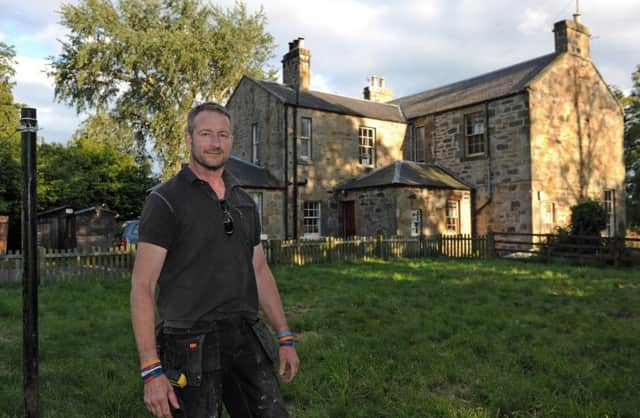‘Legalised squats’ let tenants slum it in style


Now what has been dubbed “legalised squatting” is taking off in Scotland with a new wave of property companies allowing “property guardians” to live in empty buildings such as churches, cottages on country estates, libraries, historic properties owned by charitable trusts, police stations, offices and old schools scheduled for renovation or redevelopment – all for a peppercorn rent.
Being a property guardian is becoming increasingly popular with a wide range of people, including those saving to get their first foothold on the property ladder, new graduates, young professionals arriving in a new city for their first job, and the newly separated and divorced.
Advertisement
Hide AdAdvertisement
Hide AdA typical rent is around £210 per month. Properties are occupied by a single person or a group, depending on the size of the accommodation. There are approximately 4,000 guardians throughout the UK.
Tenants, generally local working adults, sign a “licence agreement” with the average stay being 14 months, but some could be around six years. Vacancies are advertised on the internet on sites such as spareroom.com and gumtree.com.
The agreement can be terminated by the property guardian giving two weeks’ notice or the property firm serving one month’s notice. However, once “on the books” for solo or shared properties, renters with a good track record are in a good position to move to other such properties.
Ad Hoc Property Management, which operates in the UK and the Netherlands, was the first to pioneer the scheme north of the Border by finding property guardians for an 18th century estate in Selkirk run by the Haining charitable trust.
Marie Heffernan, a manager at the company, said: “Often being a property guardian is a lifestyle option allowing people to move around.
“There isn’t really a ‘type’ who does this though there are a lot of people in their mid-thirties in our properties.
“A recent property guardian we took on was a retired fireman in Paisley, in his fifties, who does volunteer work and doesn’t need any more income. He’s sold his property and is looking to downsize but doesn’t want to jump into buying.
“He is mortgage-free and didn’t want to sign up to a six-month tenancy meaning he would have two houses.
Advertisement
Hide AdAdvertisement
Hide Ad“The benefits to the owner are that this offers a security solution, an alternative to boarding it up and using security guards. The property is heated and ventilated and they let us know if there are any repairs needing to be done.”
To Neil Hunter, property and development manager at Midlothian Council, having property guardians in Midfield House, a former children’s home in Lasswade, makes a great deal of sense.
“Having people living in it keeps the building in good condition and seems to deter break-ins, especially by metal thieves who can fracture a main which takes a lot to repair. We do have other security elsewhere such as mobile patrols and hidden cameras but seeing a car outside a building or lights on seems to work.
“This is a pilot scheme before Midfield House is re-used by our housing section but we’re looking to roll it out a bit. We might do the same with a council office in Bonnyrigg later this year.”
Case Study
GRAHAM Macdonald-Brown, 50, a handyman and builder, has been a property guardian in Scotland for two years and is now living in his third property.
He lives at Redheugh Farm in Gorebridge on the Arniston estate, Midlothian, 11 miles from Edinburgh, along with two house mates who are also guardians.
He previously lived in another farm and a former children’s home.
“I remember seeing the advert for this place on Gumtree and thought at first that it was bound to be a scam. It certainly sounded much too good to be true.”
Advertisement
Hide AdAdvertisement
Hide AdMacdonald-Brown points out that potential property guardians must guard against scammers.
“There are lots of scams out there with people asking you to come and view a property then demanding a deposit for a flat they don’t even own.
“I’d just split up with my wife and was looking for somewhere to stay. I looked up the company first and realised it was probably legit.
“I phoned them and got a postcode and thought they meant derelict cottages, but it wasn’t them, it was the farm.
“There was some furniture left inside but I bought a dishwasher and washing machine myself. My rent is around £200 a month and the owners pay all the bills apart from the television licence, which I pay myself.
“There are three bedrooms and farm buildings and some land. I could be here for three months or it could be seven years, depending on how things go.”
As the property guardians are new to Scotland, notice of vacancies is often passed around informally.
“A lot of it is word of mouth. Some people can’t believe it’s real. I’m sharing with a young guy of about 25 and a girl of 23. The guy was with me at my first place, then he went off to Glasgow but came back through here.
“It’s legal squatting in a way.”